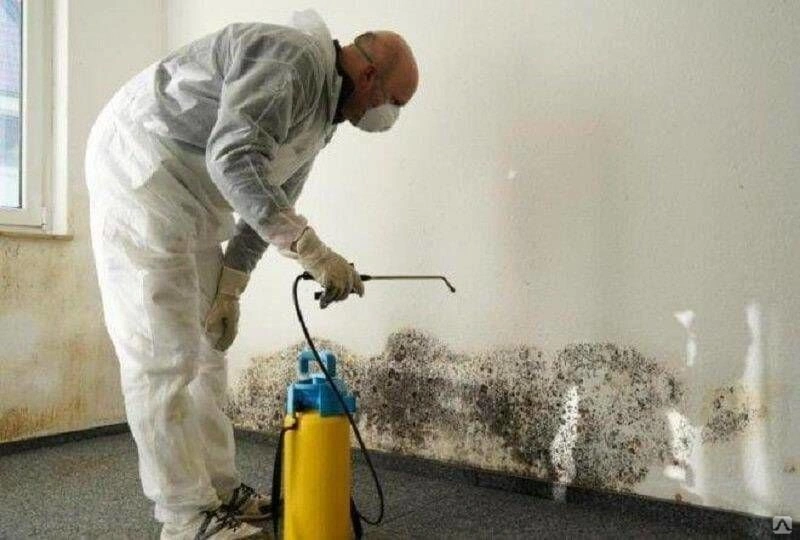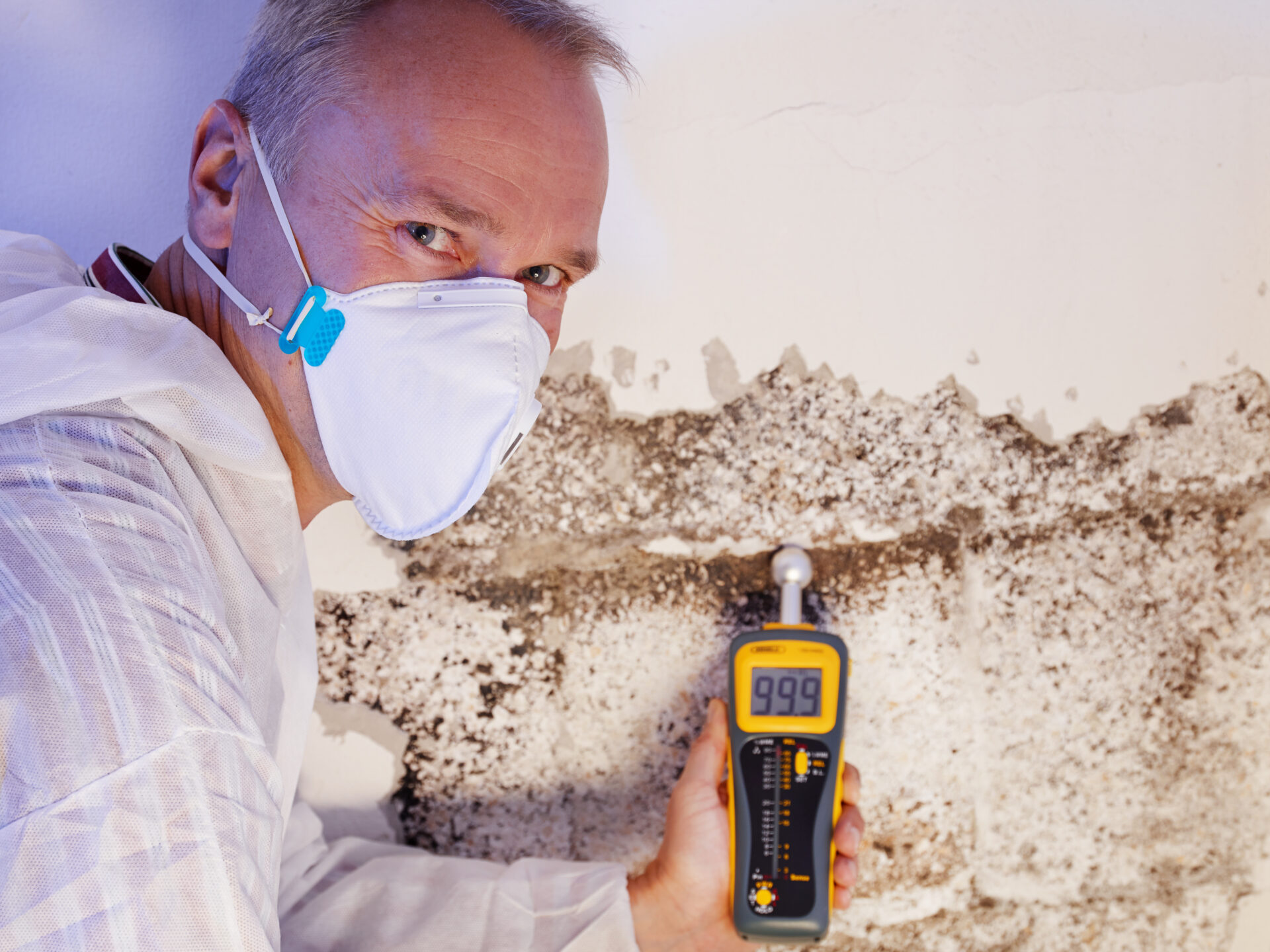Are you worried about the presence of mould in your home or business in Sydney? Professional mould testing in Sydney is a great way to make sure that your property is safe and healthy for you and your family. With the right knowledge and tools, you can ensure that you know exactly what kind of mould you’re dealing with, and take appropriate action. In this blog post, we’ll go over everything you need to know about professional mould testing in Sydney, from understanding the dangers of mould to how to go about getting the job done. Read on to find out more.
What is Mould?
Mould is a type of fungus that can grow indoors and outdoors, and it thrives in damp and humid conditions. It can grow on any surface that provides the right conditions for its growth, including walls, ceilings, floors, and even furniture. If you suspect that your home or workplace has a mould problem, it’s crucial to seek professional mould testing & inspections Sydney. A professional Sydney mould testing service can accurately assess the extent of the mould problem, identify the type of mould, and provide effective solutions to eradicate the mould growth. Ignoring the issue can lead to serious health risks, such as respiratory problems, allergies, and infections. So, if you notice any signs of mould growth, contact a professional mould testing & inspections Sydney company immediately to prevent any further damage and health issues.
The Different Types of Mould
Mould is a common problem in many households and buildings in Sydney. There are different types of mould, and it is essential to understand the differences between them to properly address the problem. Here are some of the different types of mould that you might encounter in your home or building:
- Aspergillus – This type of mould is commonly found in damp areas such as bathrooms and kitchens. It can cause allergies, asthma, and respiratory problems.
- Penicillium – This mould grows on organic materials such as food, wood, and fabrics. It can cause respiratory problems and allergic reactions.
- Stachybotrys – This is a toxic type of mould that can grow on water-damaged materials such as drywall and carpets. It can cause serious health problems such as memory loss and lung damage.
- Cladosporium – This is a common type of mould found both indoors and outdoors. It can cause allergies, asthma, and other respiratory problems.
- Alternaria – This type of mould grows on damp surfaces such as showers and sinks. It can cause allergic reactions and respiratory problems.
If you suspect that you have mould in your home or building, it is important to have it tested by a professional. Sydney mould testing can help you identify the type of mould you have and determine the best way to remove it. Don’t ignore the problem – mould can be dangerous and can cause serious health problems if left untreated.
 The Dangers of Mould
The Dangers of Mould
Mould can pose a serious health risk to both humans and animals, especially those with weakened immune systems or pre-existing health conditions. Mould can produce mycotoxins that can cause a range of health problems such as allergic reactions, respiratory issues, headaches, skin irritations, and even cognitive impairment.
Some common symptoms of mould exposure include:
– Sore throat
– Runny or stuffy nose
– Itchy or watery eyes
– Wheezing or difficulty breathing
– Headaches or migraines
– Fatigue or weakness
– Skin irritation or rash
Prolonged mould exposure can lead to chronic health conditions such as asthma, sinusitis, bronchitis, and even neurological disorders. In severe cases, mould exposure can even lead to death. Children, elderly people, pregnant women, and people with compromised immune systems are more susceptible to mould-related health problems. It’s crucial to take mould growth seriously and address it immediately to avoid the potential dangers it can cause.
How Does Mould Grow?
Mould thrives in areas with high humidity, moisture, and warmth. These are the ideal conditions for mould spores to grow and multiply rapidly. The spores float through the air and can settle on any surface. Once they find a suitable place to grow, they start to multiply. Mould needs three things to grow: moisture, nutrients, and suitable temperatures. Moisture is the most crucial factor in mould growth. It can come from a variety of sources such as leaking pipes, flooding, condensation, and high humidity levels. Mould can grow on any organic material such as wood, paper, fabrics, and carpet. The presence of these materials provides the nutrients that mould needs to survive. Temperature is another critical factor in mould growth. Mould grows best in temperatures between 20°C and 30°C. If the temperature is too high or too low, it can inhibit mould growth. However, mould can still grow at temperatures outside this range, albeit slower. Once mould starts to grow, it can quickly spread throughout a building. Mould spores can travel through the air, attach to clothing, pets, or objects, and enter other areas. As they grow, mould can produce toxic substances known as mycotoxins. These toxins can cause health problems such as allergies, asthma, and respiratory infections.
How to Identify Mould?
Identifying mould is not always an easy task, as it can often hide in hard-to-reach areas, or appear as innocuous as a smudge on the wall. However, there are a few signs that can indicate the presence of mould in your home or workplace. One of the most obvious signs of mould is a musty, damp odor. This smell can often linger long after a flood or leak has been cleaned up and can indicate the presence of hidden mould in walls or other areas. Another way to identify mould is by visual inspection. Mould can appear as discoloration on walls or ceilings, or as fuzzy patches on fabric or upholstery. In some cases, it may even appear as black spots on tiles or grout. If you suspect the presence of mould but cannot see or smell it, there are other methods of detection available. For example, professional mould testing can involve taking air samples or swabbing surfaces to check for the presence of mould spores. Regardless of how you identify mould, it’s important to address the problem as soon as possible. Left untreated, mould can cause health issues and structural damage to your property. If you suspect the presence of mould, don’t hesitate to contact a professional for assistance.
The Different Types of Mould testing & Inspections Sydney
When it comes to mould testing & inspections Sydney, various methods can be employed to determine the extent of mould infestation in a property. Each of these methods serves a specific purpose and offers unique benefits. Here are the different types of mould testing & inspections Sydney that you should know about:
- Visual inspection – This is the first step in identifying mould growth in a property. A qualified inspector will visually examine all the areas in your property that are prone to mould growth. These areas include basements, attics, bathrooms, and kitchens, among others.
- Air sampling – Air samples can help detect mould spores that are present in the air. This type of testing can provide a more accurate analysis of the mould problem in your property. It can also help determine the type of mould present and the level of contamination.
- Surface sampling – Surface samples are collected by taking a swab or tape lift of a suspected mould growth area. This method is commonly used to identify the type of mould present in the area and can also be useful in determining the severity of the problem.
- Invasive testing – Invasive testing involves removing or cutting out a portion of the wall or flooring to gain access to the mould. This method is typically used when there is a suspicion of hidden mould growth.
- Moisture testing – Moisture testing is a critical step in determining the cause of mould growth. It involves using specialized tools to measure the moisture content of surfaces on your property, including walls and floors.
Why You Should Hire Sydney mould testing?
Mould growth in your home or workplace can be a serious issue, not just for the structural integrity of your building, but also for the health of those who inhabit it. That’s why it’s important to hire a professional mould testing company in Sydney to assess and deal with the problem. Here are some of the reasons why Sydney mould testing is the right choice for you:
- Experience: Sydney mould testing has years of experience in identifying and treating mould infestations. They have dealt with a variety of mould types and know how to remove them safely and effectively.
- Certified Technicians: The technicians at Sydney mould testing are highly trained and certified to perform mould testing and removal. They are equipped with the latest tools and equipment to ensure that the job is done right the first time.
- State-of-the-Art Equipment: Sydney mould testing uses the latest technology to identify the source of the mould growth. They have access to advanced moisture detection tools, thermal imaging cameras, and air sampling devices to ensure that every aspect of the mould infestation is addressed.
- Safety: Mould removal can be a dangerous process. Without proper equipment and protective gear, it can lead to serious health issues. Sydney mould testing prioritizes the safety of its clients and technicians and takes all necessary precautions to prevent any harm.
- Guaranteed Results: When you hire Sydney mould testing, you can be sure that the job will be done right. They guarantee their work and ensure that the mould is completely removed, and your home or workplace is safe to inhabit again.
| Other Good Articles to Read |
| Niche Blogs Connect |
| Blogs 97 |
| Blog Stitution |
| Blogs Unplugged |
| Blogs Cotch Rouge |
| Blog Signatr |
| Blog Sintonias |
| Blog Zilla |
| Consumer Forums |
| Finance Forums |
| G Blogs |
| Too Blog |



